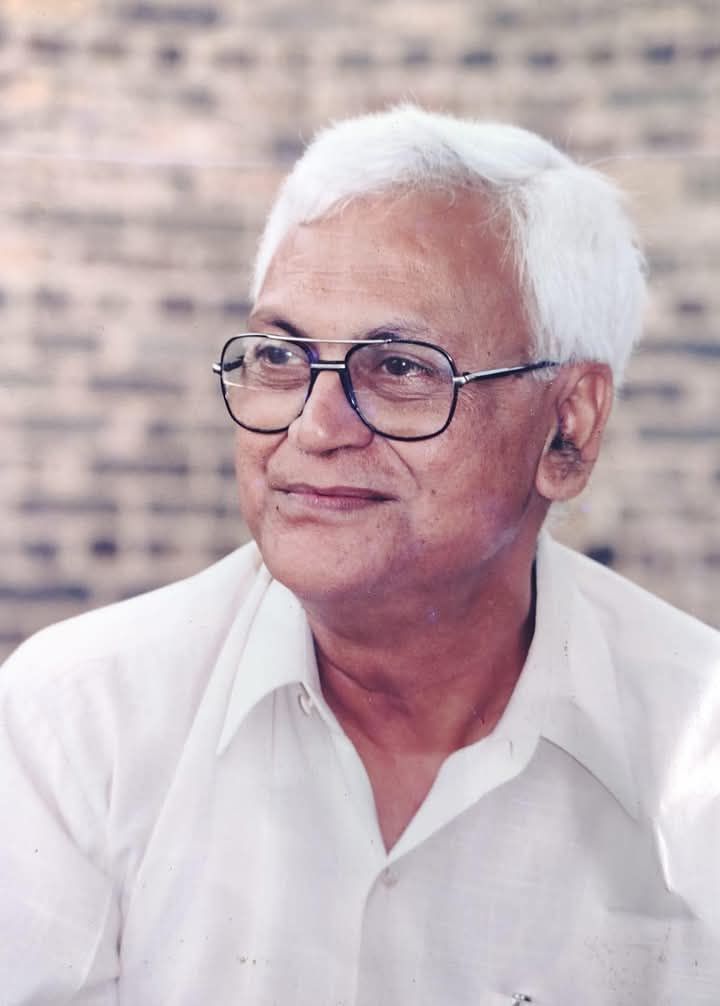Mrityunjay Bhattacharjee’s name is intrinsically linked with the growth and development of Assam University, Silchar, where he served with distinction as its Vice-Chancellor. His tenure marked a pivotal period for the nascent institution, guiding it through its formative years and laying a robust foundation for its future. Beyond his administrative acumen, Bhattacharjee was a scholar of repute, a dedicated educationist, and a visionary who understood the critical role a university plays in the socio-economic and intellectual upliftment of a region. His leadership extended beyond mere bureaucratic functions; it encompassed fostering an academic environment, promoting research, and ensuring the university remained true to its mandate of serving the diverse populace of Northeast India.
Born into a family that likely valued education, Mrityunjay Bhattacharjee embarked on an academic journey that would eventually lead him to one of the most significant leadership roles in higher education in Assam. While specific details of his early life, schooling, and initial university education might not be widely publicized, his eventual ascendancy to the Vice-Chancellorship suggests a trajectory marked by intellectual rigor, consistent academic achievement, and a growing reputation within scholarly circles. Before his appointment at Assam University, it is highly probable that he held various academic and administrative positions, honing the skills and gathering the experience necessary to navigate the complexities of university leadership. These prior roles, whether as a professor, head of a department, dean, or in other administrative capacities at other reputable institutions, would have provided him with invaluable insights into curriculum development, faculty management, student welfare, and the intricate financial workings of a university.
The late 20th and early 21st centuries were periods of significant expansion and reform in the Indian higher education landscape. New universities were being established to cater to the growing demand for quality education and to ensure equitable access across different regions. Assam University, Silchar, established in 1994 under an Act of Parliament, was one such institution, designed to serve the Barak Valley and other parts of Northeast India, a region rich in cultural diversity but historically underserved in terms of educational infrastructure. It was into this environment of nascent potential and considerable challenge that Mrityunjay Bhattacharjee stepped in as Vice-Chancellor.
His appointment to the top leadership position at Assam University was not merely a ceremonial one; it came at a critical juncture. The university, being relatively new, would have faced numerous hurdles: establishing academic departments, recruiting qualified faculty, developing a robust curriculum, constructing essential infrastructure, attracting students, and securing adequate funding. These were monumental tasks, requiring not only administrative competence but also a profound understanding of academic principles, a commitment to equity, and a strong vision for the university’s future.
One of the most significant aspects of Mrityunjay Bhattacharjee’s tenure was undoubtedly his role in shaping the academic ethos of Assam University. He understood that a university’s true strength lies in its academic programs and the quality of its teaching and research. Under his leadership, efforts would have been concentrated on establishing a diverse range of departments spanning the humanities, social sciences, sciences, and professional courses. This involved not only the formal approval of new programs but also the meticulous process of curriculum design, ensuring relevance to regional needs while maintaining national and international standards.
Recruitment of faculty would have been another paramount task. Attracting highly qualified and dedicated academicians to a new university, particularly in a region that sometimes faced geographical and logistical challenges, required strategic planning and persuasive leadership. Bhattacharjee’s reputation and vision likely played a crucial role in drawing talent, fostering an environment where scholars felt supported and empowered to contribute to the university’s growth. He would have emphasized the importance of a strong faculty committed to both teaching excellence and research output, recognizing that these two pillars are fundamental to a university’s reputation.
Beyond establishing departments and recruiting faculty, Bhattacharjee’s leadership would have been instrumental in fostering a culture of research and intellectual inquiry. He understood that a university is not merely a teaching shop but a hub of knowledge creation. Encouraging faculty to undertake research, secure grants, publish in reputed journals, and present at national and international conferences would have been a key focus. He would have likely supported the establishment of research centers and laboratories, providing the necessary infrastructure for cutting-edge work. This emphasis on research would have not only enhanced the university’s academic standing but also contributed to addressing regional challenges through informed scholarship.
Infrastructure development is an often-overlooked but crucial aspect of university building, especially for a new institution. During Bhattacharjee’s time, the university campus would have been in a continuous state of evolution. This involved planning and overseeing the construction of academic blocks, administrative buildings, libraries, student hostels, faculty residences, and other essential facilities. Such projects require significant financial acumen, negotiation skills with government bodies and contractors, and a long-term vision for campus development. His ability to secure funding and effectively manage these large-scale projects would have been vital in transforming a nascent campus into a functional and vibrant educational hub.
Student welfare and development would have been another area of his keen interest. A university’s success is ultimately measured by the success of its students. Bhattacharjee would have championed initiatives aimed at ensuring a conducive learning environment, providing adequate support services, and fostering holistic student development. This could have included establishing student counseling services, career guidance cells, sports facilities, and cultural programs, all designed to ensure that students not only excelled academically but also developed into well-rounded individuals ready to contribute to society. Understanding the diverse socio-economic backgrounds of students in the region, he would have likely advocated for scholarships and financial aid programs to ensure accessibility for deserving students.
Furthermore, Mrityunjay Bhattacharjee’s leadership would have been critical in navigating the administrative and bureaucratic complexities inherent in managing a central university. This included liaising with the University Grants Commission (UGC), the Ministry of Education, and various state government departments. His ability to articulate the university’s needs, secure necessary approvals, and ensure compliance with regulatory frameworks would have been paramount to its smooth functioning and growth. Maintaining good relations with all stakeholders – students, faculty, staff, alumni, and the local community – would have been a hallmark of his inclusive leadership style.
His impact also extended to the university’s relationship with the local community and the broader region. Assam University, Silchar, was established with a mandate to serve the educational needs of the Barak Valley and the surrounding areas. Bhattacharjee would have ensured that the university remained responsive to regional aspirations and contributed to local development. This could have involved promoting local languages and cultures, conducting research relevant to regional issues, and engaging in community outreach programs. His vision would have encompassed making the university not just an ivory tower but an integral part of the societal fabric, contributing to its intellectual and economic vibrancy.
The challenges he faced would have been considerable. Being a new university, Assam University would have had to contend with limited resources, the need to rapidly build a reputation, and perhaps even initial skepticism from some quarters. Navigating political pressures, managing diverse expectations from different stakeholder groups, and ensuring academic autonomy while adhering to national guidelines would have required immense resilience and diplomatic skill. Bhattacharjee’s ability to maintain focus on the university’s core mission amidst these pressures is a testament to his strength of character and unwavering commitment.
In retrospect, Mrityunjay Bhattacharjee’s tenure as Vice-Chancellor of Assam University, Silchar, represents a period of significant growth and consolidation. He took a nascent institution and, through his dedicated leadership, foresight, and administrative prowess, transformed it into a reputable center for higher learning. His legacy is not just in the buildings erected or departments established, but in the academic culture he fostered, the intellectual standards he upheld, and the countless students and faculty members whose lives he positively impacted. He laid the groundwork for Assam University to emerge as a vital educational institution in Northeast India, contributing significantly to the region’s intellectual capital and human resource development.
Even after his departure from the Vice-Chancellorship, his influence would have continued to resonate within the university community. The systems, policies, and academic traditions he helped establish would have shaped the university’s trajectory for years to come. Mrityunjay Bhattacharjee will be remembered as a key architect in the making of Assam University, Silchar – a scholar who understood the power of education, a leader who inspired growth, and a visionary who dedicated his efforts to building an institution of lasting value. His contributions serve as a lasting testament to his profound commitment to higher education and the upliftment of society through knowledge.
Mrityunjay Bhattacharjee, the former Vice Chancellor of Assam University, Silchar, passed away on June 11, 2025.
His tenure saw numerous changes in the examination system, which will always be remembered.

